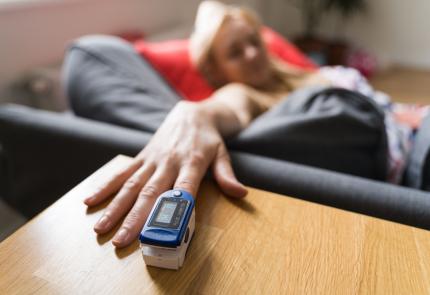Q: Fiona, please introduce yourself and applied informatics research at the ARC
I’m a consultant psychiatrist in the National Psychosis Unit at South London and Maudsley NHS Foundation Trust (SLaM) and a clinical academic specialising in the physical health care of people with serious mental illnesses, based at King’s College London.
I also lead the ARC’s applied informatics research theme, which brings together digital developers, patients and the public, and researchers to evaluate the implementation of digital technologies into practice – including digital tools, mobile health technologies, machine learning or artificial intelligence, and the application of knowledge from routine observational data. Our technological capabilities are high now, but what we need to develop is evidence about how best to use such technologies in routine health and social care.
Q: How has informatics research helped to reveal the impact of the Covid-19 pandemic on those living with serious mental illness in south London?
Rolling analysis of large observational datasets led by Professor Robert Stewart, Professor of Psychiatric Epidemiology & Clinical Informatics at King’s College London, showed early on that there was a significant excess of deaths during the first wave of the pandemic in people who have used SLaM services, compared to the same period the year before. This provided data to strengthen our concerns that people with serious mental illnesses might be especially vulnerable to the effects of Covid-19 and informed our discussions with the National Clinical Lead for Deterioration at the NHS and the local Covid Oximetry @home team.
Q: Can you explain the Covid Oximetry @home service and why you wanted to get involved?
The Covid Oximetry @home service identifies people with suspected or confirmed Covid-19, and who are most at risk of becoming seriously unwell, and provides them with pulse oximeters, training them to measure their blood oxygen levels at home to identify people who are deteriorating and intervene early. This is key to improving health outcomes. It seemed to us that given mental health service users’ many risk factors for poorer health outcomes these service users and patients would benefit greatly from inclusion in the Covid Oximetry @home service.
Q: How did collaboration with key stakeholders, including South London and Maudsley NHS Foundation Trust (SLaM), enable the project to achieve its goals?
The SLaM leadership has continually worked across London to highlight the additional needs and risks of people with serious mental illnesses in the context of the Covid Oximetry @home services. SLaM and the ARC applied informatics team built on the work already done by the Health Innovation Network and local primary care leaders in this area. We aimed to develop practical yet flexible suggestions about how to include serious mental illness as a risk indicator in practice and share those with our colleagues across the country.
Q: What lessons could we take forward from this approach for other cross-partner projects in south London?
People with serious mental illnesses suffer health disadvantages across the board, and by this stage we have robust data to demonstrate their needs. The illnesses themselves can compromise people’s ability to communicate their health needs or follow complex management plans and so services need to be flexible and make reasonable adjustments. It would be hugely beneficial if clinical researchers could routinely link with existing initiatives designed to manage either long-term conditions or deteriorations in health to determine how these could benefit from adjustments to meet the needs of those with complex mental disorders.

